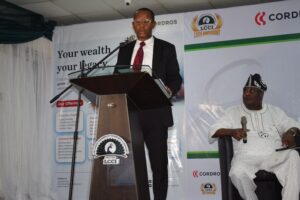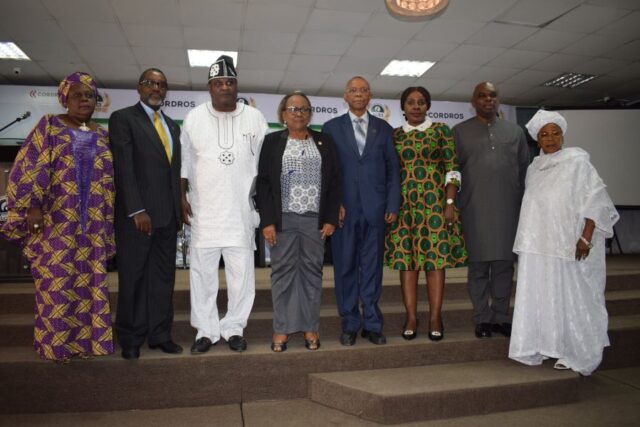
MON, AUGUST 21 2023-theGBJournal |Institutional reorganization is urgently needed in the Central BANK of Nigeria (CBN) and the NNPC Limited to improve transparency and accountability, a consensus of stakeholders at the 2023 Mid-Year Economic Review and Outlook jointly organized by the Lagos Chamber of Commerce and Industry (LCCI) and Cordros Capital recently.
The Mid Year review and outlook was designed to be a hybrid event, where recent economic actions and policies of the country was discussed.
The stakeholder in a communique after the event outlined actions they expect from the Federal Government going forward.
They said in the communique that the operating environment of NNPCL is somewhat opaque, which is anti-competition.
”The oil sector will attract the desired investment if the government liberalizes fuel import licenses and other vital activities in the midstream and downstream.”
They urged the Federal Government to consider ”the urgent need for an all-encompassing economic and fiscal plan, full/ partial divestment of state-owned real estate, improved transport sector, and energy assets as post-election priorities,” adding that the government must equally focus more on asset-based and equity offerings to improve revenue.
They also advised government to unlock revenue from assets by complementing tax with rent, fees, dividends, and capital gains.
”Economies that optimize revenue through equities have recently offset the loss from declining commodity prices”
The new administration of President Bola Ahmed Tinubu they say must borrow better to reduce debt costs by issuing a more asset-linked debt than IOUs.
The non-interest-bearing debt opportunities should be explored as emerging markets tilt towards project equity financing.
More pertinently, they advised that Bureau de Change (BDCs) should not be referred to as parallel or unofficial markets, because they are officially licensed to trade.
According to the joint organizers: ”the Nigerian economy in the first half of 2023 was quite challenging due to multiple factors.
Although the general elections held in March 2023 were considered relatively peaceful and the transition completed in May, business conditions and operating environment in the first half of the year were essentially difficult due to rising interest rates, inflationary pressures, foreign exchange volatility, and the liberalization of the downstream sector of the oil and gas industry.
As a result, the cost of living has significantly gone up. The first quarter GDP slowed to 2.31%, primarily driven by growth in the non-oil sector while the oil sector remained in recession.
They noted that the country also witnessed a significant decline in foreign direct investments (FDIs), coupled with a high level of public debt stock and concerns for debt sustainability, high unemployment, and poverty levels.
The International Monetary Fund (IMF), in its July 2023 World Economic Outlook (WEO) Update, lowered its growth projection for Nigeria in 2023 to 3.2% from 3.3% in 2022, reflecting security issues in the oil sector, policy risks, and persistently high inflation.
”To address long-standing macroeconomic imbalances and change the economy’s trajectory, the new government led by President Bola Tinubu introduced several reform policies, including fuel subsidy removal and foreign exchange unification,” they said.
Twitter-@theGBJournal|Facebook-the Government and Business Journal|email:gbj@govbusinessjournal.com| govandbusinessj@gmail.com










